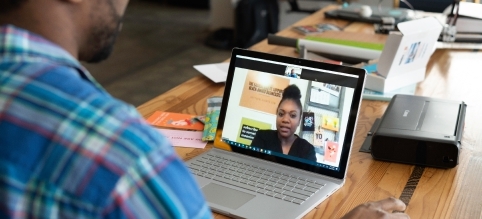“Practical tips and strategies on how to ensure your office space promotes mental wellness.” [freeofficefinder.com]
“Managing well-being in a remote work setup and knowing how to improve physical and mental health” [jam.co.uk]
.
The last three years in particular has been very stressful for us – including in the workplace.
There’s a lot of helpful advice out there, though, on how we as employees and employers can manage stress at work.
Here’s one such guide, just sent into the VGS for sharing:
How to ensure your office space promotes Mental Wellness
In today’s fast-paced world, mental wellness has become increasingly important, especially in the workplace where employees spend a significant portion of their time. That’s why we wanted to share this piece that aims to provide practical tips and strategies on how to ensure your office space promotes mental wellness. Our research found that:
- More than two-thirds of employees (69%) reported increased anxiety and stress levels due to the pandemic (CIPD).
- Women were more likely than men to experience a decline in mental health during the pandemic (ONS).
- According to research by Deloitte, UK businesses could save up to £8 billion per year by investing in mental health support services for their employees.
How to ensure your office space promotes Mental Wellness | FreeOfficeFinder
Here’s another guide forwarded to the VGS:
Managing the Well-being of Employees

The remote work set-up is not always a comfort to everybody, especially when eyes are constantly on-screen, without proper equipment to monitor good ways to maintain well-being. To inform responsible ways of managing employees and their screen time, we recently published the guide Managing Employee Well-being. Although a lot of positive comments exist for remote work, some of the topics we thoroughly explained are the following:
- Understanding the relationship between screen time and well-being
- Knowing how to improve emotional and physical health through responsible screen time
- Encouraging two-way conversations between employees and managers
Some of the insights we explored also revealed that the hours of screen time rendered per person is increasing. In fact, in 2022, the average hours spent daily by adults in the UK is 5 hours. This shows a 2-hour increase from the recorded data in 2020.
Aside from understanding the relationship between screen time and well-being, we also found out that:
- Although technology can give geographical freedom to employees, constant communication can be a significant source of stress. In fact, 60% of people support introducing a law giving employees the right to ignore work communications outside their contracted hours.